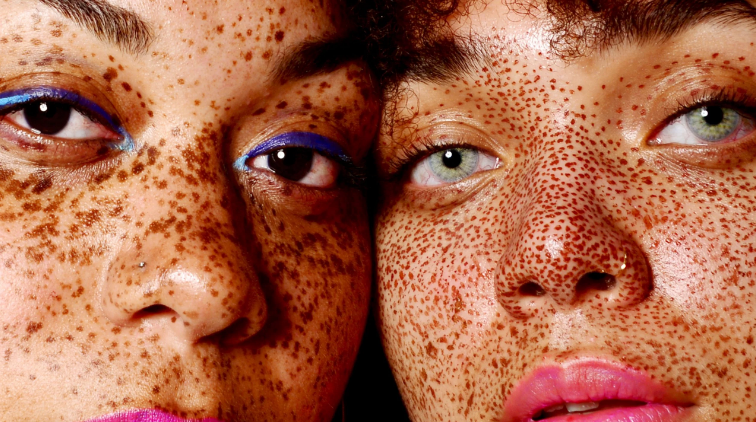The mantra "Black don't crack" has been a guiding principle for me throughout my life as a woman of color. I held onto the belief that my dark skin would serve as a shield against aging. Observing the graceful aging of African-American women in my family and icons like Gabrielle Union and Angela Bassett seemed to affirm this notion. However, as I've grown older, my understanding of skincare has evolved—I am a beauty editor, after all.
While the surplus of melanin in my skin does contribute to fending off wrinkles, it doesn't provide immunity against skin cancer or hyperpigmentation. Recognizing this, I've become more committed to my skincare routine, acknowledging that individuals with darker skin tones have specific concerns to address. To gather insights on caring for melanated skin, I consulted dermatologists specializing in the treatment of skin color.
What Is Melanated Skin?
Melanin, a polymer originating from the amino acid tyrosine, is genetically determined in our bodies, but various factors like hormones, sun exposure, and UV light can influence melanocytes, the cells responsible for its production. This process leads to phenomena such as dark spots, freckles, and the coveted "sun-tanning." Beyond coloring our skin, melanin provides natural sun protection, absorbing around 50-70% of UV rays.
How To Take Care Of Melanated Skin
For those with sensitive skin, especially individuals prone to eczema, a straightforward skincare routine is ideal. Such skin reacts adversely to fragrance, perfume, and dyes, making formulas without excessive additives a preferred choice.
Moisturize
Dry skin affects everyone, but in skin of color, it becomes more pronounced with a noticeable dull, white cast. Ashiness may result from environmental factors like cold weather and indoor heat, prolonged hot baths, and the use of harsh chemicals in soaps, lotions, and detergents. Black skin, in particular, is prone to dryness due to its lower ceramide content compared to other racial groups and a higher rate of transepidermal water loss. The thicker stratum corneum, shedding more prominently against a darker background, contributes to the appearance of ashiness, particularly in contrast to Caucasian skin.
Dry skin is susceptible to irritation, redness, inflammation, and subsequently, hyperpigmentation. To prevent this, opt for mild cleansers that preserve natural oils and moisturize regularly, choosing gentle alternatives to traditional soaps to maintain the skin's moisture barrier.
Use SPF
In my skincare articles, I've always stressed the importance of sunscreen, but I'll confess—I only started using a daily moisturizer with SPF a few years ago (no judgments, please). Growing up, sunscreen was a must for beach days in my family, but it wasn't until I realized its role in slowing down skin aging that I became committed to applying it daily. I often tell my patients, regardless of their ethnic background, that we're all susceptible to photodamage; it just manifests differently in our skin. People with darker skin tend to show photodamage through worsening hyperpigmentation on the cheeks and lower face, resulting in an uneven complexion due to sun exposure. Despite the advantages of extra melanin, which makes darker skin less prone to sunburn and UV damage, wearing sunscreen remains crucial as skin cancer can still occur.
Check Active Ingredients In Skincare Products
When it comes to skincare ingredients, be cautious to avoid potential irritants that could lead to postinflammatory hyperpigmentation (PIH). If you plan to use retinoids or benzoyl peroxide, consulting a dermatologist is wise. These powerful agents, if used too quickly or at high concentrations, can cause hyperpigmentation.
For retinoids, it's recommended to start with an over-the-counter retinol once or twice a week at night, always paired with a moisturizer to minimize inflammation. As for benzoyl peroxide, use it as a cleanser with short contact time to prevent irritant contact dermatitis, especially in people with darker skin.
Hydroquinone, a gold-standard skin lightener, should be explored under a dermatologist's care. They can prescribe the right strength and guide you on proper usage. Over-the-counter products usually have a percentage too low to be effective but high enough to cause irritation and worsen pigmentation. Hydroquinone requires monitoring, as its potency can lead to halo pigmentation, creating a light area around the original dark spot and resulting in an unnatural skin tone.
Find A Dermatologist
Not all dermatologists are equally familiar with the nuances of darker skin, so it's crucial for individuals with darker skin types to seek out experts in skin of color or those experienced in treating pigmentary disorders. You can find a dermatologist through AAD.org or search the Skin of Color Society for a specialist in your area.
Conclusion
While so many people with melanated skin get confused on how to take care and understand their skin, we have curated some of the most important and simple skincare tips for melanated skin that are effective and actually help in making your skin better and healthier.












